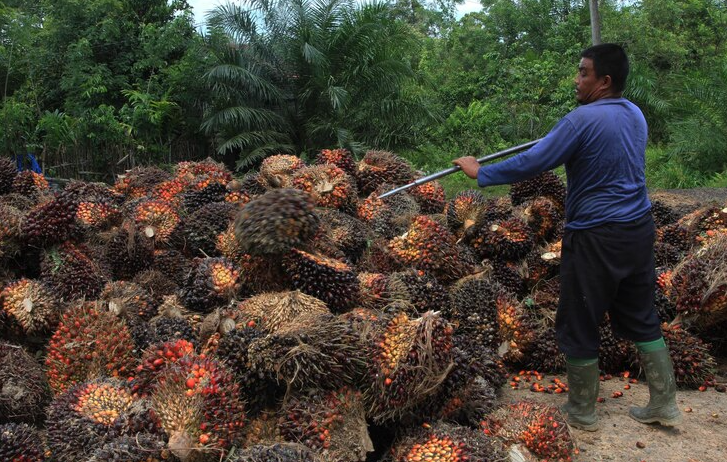Sustainability has become a global priority as countries strive to protect the environment, preserve natural resources, and create a healthier future for generations to come. In Nigeria, a nation rich in natural resources and biodiversity, the need for sustainable development has never been more critical. With the growing challenges of climate change, deforestation, pollution, and energy consumption, Nigeria is embracing the Green Revolution—a movement aimed at ensuring environmental sustainability, economic growth, and social well-being.
This subject explores how Nigeria is tackling sustainability in the 21st century, the progress made so far, and what the future holds for the country’s green movement.
1. Understanding the Green Revolution in Nigeria
The Green Revolution refers to Nigeria’s collective efforts to promote eco-friendly policies, renewable energy, afforestation, waste management, and climate change adaptation. It is a response to decades of environmental degradation caused by oil exploration, urbanization, and unsustainable agricultural practices.
Sustainability efforts in Nigeria focus on three key areas:
✔ Environmental Conservation: Reducing deforestation, tackling desertification, and improving waste disposal.
✔ Renewable Energy Solutions: Investing in solar, wind, and hydropower to reduce dependence on fossil fuels.
✔ Green Economy and Innovation: Encouraging eco-friendly businesses, sustainable agriculture, and clean technology.
Through these initiatives, Nigeria aims to protect the environment while ensuring economic growth and job creation.
2. Renewable Energy: A Shift Toward Sustainability
Nigeria has one of the largest energy deficits in the world, with millions of people lacking access to reliable electricity. However, the country is making strides in renewable energy, with the government and private sector investing in solar, hydro, and wind power.
🔹 Solar Energy Boom:
Nigeria has abundant sunlight, making solar energy a viable alternative. The government and private companies are investing in off-grid solar solutions to power rural areas. Initiatives like Solar Nigeria and the Beyond the Grid Initiative are providing affordable solar solutions to thousands of homes.
🔹 Hydropower Expansion:
Nigeria’s Kainji, Shiroro, and Jebba dams generate significant electricity, and plans are underway to expand hydropower projects to meet growing energy demands.
🔹 Wind Energy Development:
Although still in its early stages, wind energy projects in Northern Nigeria are gaining traction. The Katsina Wind Farm, for instance, has been developed to supply clean energy to communities.
These renewable energy projects reduce carbon emissions, create jobs, and promote energy security, making them essential to Nigeria’s green agenda.
3. Tackling Deforestation and Climate Change
Nigeria faces severe deforestation, with over 400,000 hectares of forest lost annually due to logging, agriculture, and urbanization. This has led to soil erosion, desertification, and biodiversity loss. However, the government and environmental organizations are taking action:
✔ The Great Green Wall Initiative: A Pan-African project to combat desertification in the Sahel region by planting millions of trees.
✔ Afforestation Programs: Encouraging communities to plant trees and restore degraded lands.
✔ Ban on Charcoal Exportation: To curb deforestation, the government has restricted charcoal exports and promoted clean cooking alternatives.
With climate change worsening, Nigeria has committed to reducing greenhouse gas emissions by 20% by 2030, aligning with the Paris Agreement.
4. Waste Management and Recycling Innovations
Nigeria generates over 32 million tons of waste annually, and poor waste management has led to flooding, pollution, and health hazards. However, recycling and waste-to-energy initiatives are revolutionizing the sector.
💡 Key Waste Management Initiatives:
✔ Lagos Waste Management Authority (LAWMA): Implementing recycling programs and waste collection services.
✔ Recycling Startups: Companies like Wecyclers and RecyclePoints incentivize waste collection and create job opportunities.
✔ Plastic Ban Policies: Some states have introduced plastic bag restrictions to reduce pollution.
By promoting recycling and waste-to-energy projects, Nigeria is turning waste into wealth while protecting the environment.
5. Green Agriculture: A Path to Food Security
Agriculture remains a key pillar of Nigeria’s economy, but traditional farming practices contribute to soil degradation, deforestation, and excessive water use. The Green Agriculture movement is introducing sustainable farming techniques, such as:
✔ Organic Farming: Reducing the use of chemical fertilizers and pesticides.
✔ Irrigation Efficiency: Promoting drip irrigation systems to conserve water.
✔ Agroforestry: Integrating trees into farmlands to improve soil fertility and reduce deforestation.
✔ Biodegradable Packaging – Encouraging farmers to use eco-friendly packaging for produce.
These innovations enhance food security, increase farmers’ income, and reduce environmental damage.
6. Nigeria’s Green Economy: The Role of Businesses and Innovation
The private sector plays a major role in Nigeria’s sustainability drive by investing in eco-friendly products, clean technology, and green jobs. Some notable green businesses include:
✔ Arnergy: A company providing solar power solutions for businesses and households.
✔ ColdHubs: A startup using solar-powered refrigeration to reduce food spoilage.
✔ Rensource Energy: A clean energy firm delivering off-grid solar solutions.
The rise of eco-entrepreneurs is proof that sustainability and profitability can go hand in hand.
7. Challenges in Nigeria’s Sustainability Efforts
Despite progress, Nigeria still faces major hurdles in its Green Revolution:
🚧 Inadequate Funding: Many sustainability projects lack government and private investment.
🚧 Weak Enforcement of Environmental Laws: Pollution and illegal logging remain rampant due to poor regulation.
🚧 Public Awareness: Many Nigerians are unaware of eco-friendly practices, requiring more education and advocacy.
Addressing these challenges requires stronger policies, increased investment, and greater public engagement.
8. The Future of Nigeria’s Green Revolution
Nigeria’s sustainability efforts are gaining momentum, but there is still a long way to go. Future success will depend on:
✔ Government Commitment: Strengthening laws, investing in renewables, and supporting eco-friendly businesses.
✔ Public Participation: Encouraging citizens to adopt sustainable lifestyles.
✔ International Collaboration: Partnering with global organizations for funding and technology transfer.
If Nigeria fully embraces sustainability, it can lead Africa in green innovation and environmental protection.
Conclusion: A Greener Nigeria for a Better Future
Nigeria’s Green Revolution is a bold step toward sustainability, addressing climate change, energy shortages, and environmental degradation. By investing in renewable energy, waste management, afforestation, and eco-friendly innovations, the country is laying the foundation for a cleaner, healthier, and more prosperous future.
The journey is far from over, but with continuous effort, investment, and public engagement, Nigeria can become a global leader in sustainability.
Last Updated on March 25, 2025 by kingstar





